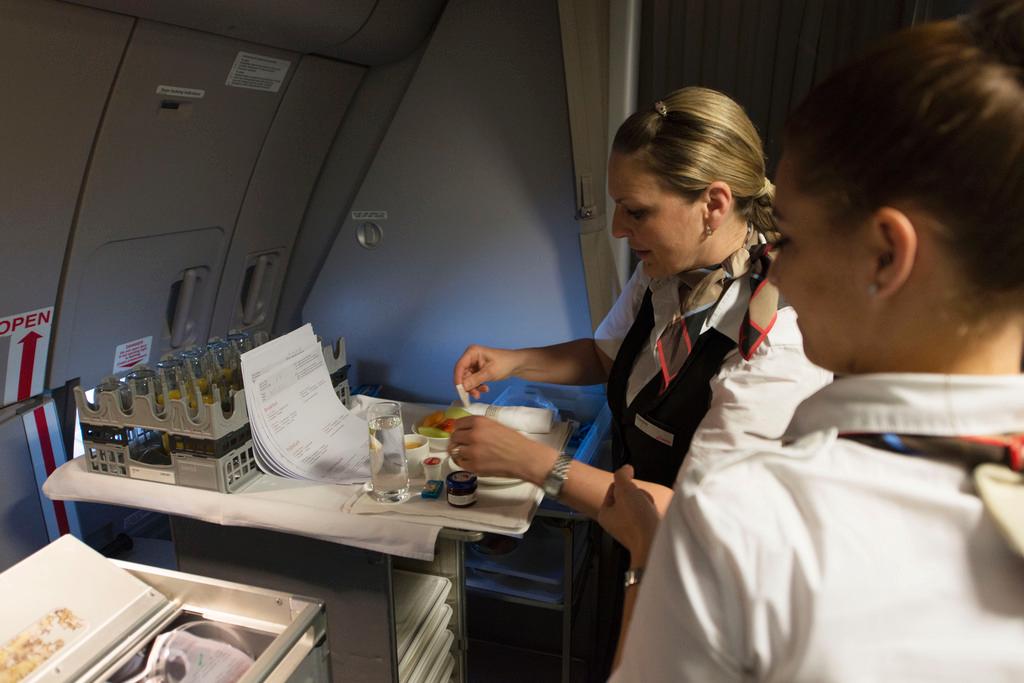Swiss companies adjust to strong franc

After the significant mood slump following the franc shock in the beginning of the year, the prospects for the Swiss economy have stabilised, according to the Deloitte CFO Survey for the third quarter of 2015.
More than a third (37%) of the 110 Swiss chief financial officers (CFOs) surveyed still considered the economic outlook for the next 12 months to be negative. However, fewer were pessimistic than the previous quarter (41%).
Swiss businesses appear to have accepted the new reality and to have gradually adjusted to the exchange rate appreciation, the authors said.
Fears of a recession remain at the same level: 25% of Swiss CFOs currently expect a recession in the next two years.
“Although the economic outlooks are still dampened, the overall mood appears to have brightened in the last two quarters,” said Michael Grampp, chief economist at Deloitte in Switzerland.
“Swiss companies observed the weakening of the Swiss franc in recent weeks with relief. However, there are still uncertainties – not least due to growth fears in China and other emerging nations, as well as the persistent strength of the franc.”
Exchange rate shock
Earlier this year, the Swiss National Bank (SNB) lifted the minimum exchange rate of CHF1.20 per euro, introduced in September 2011. This decision, announced on January 15, caught markets by surprise and caused the Swiss stock market to plunge. One franc is currently worth €1.08.
Deloitte said the effects of an exchange rate of €/CHF1.20 were considered much less negative this quarter compared with this time last year. Only around a tenth of CFOs currently considered this exchange rate to be a disadvantage for their own businesses.
The assessment of a 1.10 rate has also considerably shifted. While it was still considered a significant disadvantage a year ago, it is currently seen only as a minor one: around a third of those surveyed considered 1.10 to be neutral; and only about a fifth saw this as a disadvantage to their own businesses.
“Since the franc shock last January, the majority of Swiss businesses now seem to have adjusted to the appreciation in the exchange rate,” Grampp said.
Business risks
When asked about the greatest risks to their businesses, CFOs named external risks above all: more than two-thirds of CFOs (67%; -3% when compared with the previous quarter) consider the strength of the franc as their greatest business risk.
Increasing regulation in Switzerland (61%; +9%) and geopolitical risks (59%; no change) are also considered significant.
When it comes to internal risks, the majority (53%) of CFOs surveyed rated one factor as particularly crucial for the next year: that of a skills shortage.
“At first glance, this number may be surprising since businesses are currently keeping a very close eye on costs, particularly when it comes to personnel costs,” Grampp said.
“However, having the right employees is a key competitive factor for Swiss businesses in the current environment. This makes it all the more important that they continuously focus on recruiting and retaining highly qualified staff.”
In addition, the majority (65%) see launching new products and services as an important strategy in the next 12 months.

In compliance with the JTI standards
More: SWI swissinfo.ch certified by the Journalism Trust Initiative





You can find an overview of ongoing debates with our journalists here. Please join us!
If you want to start a conversation about a topic raised in this article or want to report factual errors, email us at english@swissinfo.ch.